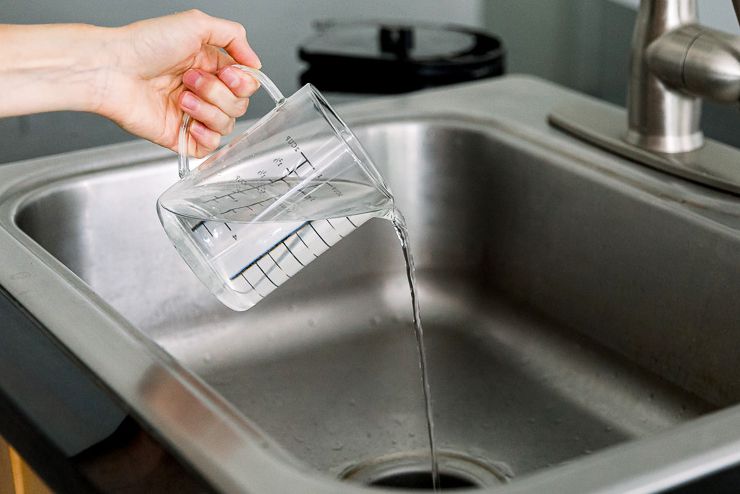We think of plumbing problems as something that we can handle ourselves, but a clogged drain can quickly become a big problem. Clogged drains are common and can happen for a variety of reasons – everything from food particles, grease, and hair to even toys and other objects. That’s why it’s important to take the proper steps to unclog a drain yourself or know when it’s time to call a plumber.
In this article, we’ll take a look at how to deal with a clogged drain, what tools you should have on hand, and when it’s time to call in the professionals.
What to do when you first realize your drain is clogged
The first step is to determine the source of the clog. In many cases, hair is the culprit. If you can easily get at the clog and it’s composed mainly of hair, then you may be able to clear it out with a plunger or drain snake.
To use a plunger, fill the sink with a few inches of water and then place the plunger over the drain. Pump up and down rapidly several times, then quickly remove the plunger to let out the air. This should help break up the clog if it’s composed mainly of hair.
A drain snake is also an effective tool for removing clogs. This tool consists of a long metal cable with an auger on the end that you can insert into the drain to try and break up or remove the clog.
Another DIY method is to pour a mixture of hot water, baking soda, and vinegar down the drain. This can help break up any blockages and clear away debris. This is also a great way to keep your drain running smoothly when used regularly.
Finally, if none of these methods work, it’s time to call in a professional. A plumber can use special tools and techniques to unclog the drain and get things flowing again.
What not to do when dealing with a clogged drain
It’s important that you don’t attempt any drastic measures when dealing with a clogged drain in Holladay or elsewhere. Here are a few common mistakes you should avoid:
- Don’t pour harsh chemicals down the drain. These can be caustic and can damage your pipes over time.
- Don’t use a plunger on a double-basin sink, as this will cause water to back up in the other basin.
- Don’t use a drain snake if you don’t know what you’re doing. If the clog is deep, this could cause more damage than good.
- Don’t try to disassemble the drain yourself. It’s best to leave this job for a professional plumber who has the tools and expertise to do the job safely.
By following these tips, you’ll be able to handle a clogged drain on your own or know when it’s time to call in the professionals. Remember, if things don’t seem to be improving after attempting DIY measures, then it’s definitely time to get in touch with a plumber. They will be able to help you get your drain flowing properly again in no time.
How to prevent clogged drains
Prevention is the best way to deal with clogged drains. Here are a few tips on how to do this:
- Use drain screens in your sinks and showers to catch hair and other debris before it goes down the drain. Clean them regularly so they don’t become clogged themselves.
- Avoid pouring oil, grease, and other fatty substances down the drain. These will solidify in your pipes and can cause major blockages.
- Don’t flush any foreign objects down the toilet, as these could get stuck in your pipes and cause clogs.
- Have a plumber inspect your piping system regularly to make sure everything is functioning properly.
By taking these steps, you can help prevent clogged drains and make sure your home’s plumbing system runs smoothly for years to come.
When to call a plumber
There are certain times when the DIY approach won’t do and you have to call a plumber. Here are some of those situations:
- If the clog is deep in the pipes and you can’t reach it with a plunger or drain snake.
- If you have old or corroded pipes that need to be replaced.
- If your home has a septic tank system, which requires professional maintenance.
- If you have multiple drains that are clogged, it may be a sign of a bigger problem.
If you’re in any of these situations, then it’s best to call a professional plumber for help. They will have the tools and expertise necessary to assess the issue and get your drain flowing again quickly and safely.

